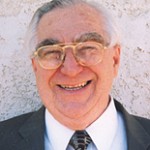Dying is not only an individual experience but also a family and community happening. Just like birth it has a dramatic effect on all those who share and participate in the event.
Often we are perplexed as to what to say and do during this time. What’s most important to the dying person is having someone listen to them. Those who are actively dying often have a great desire to share their experience and what is happening to them with others.
As the person gets closer to death they may have glimpses of a world beyond what we know in this physical world of ours. They may even experience the presence of loved ones who have died and gone before them. Sometimes they may indicate they have had a “visitation” from a beloved family member or a spiritual entity. Often their language becomes symbolic and results in misunderstandings.
Family members, friends and professional caregivers may label these communications as hallucinations or judge the dying person as being “out of it” and that the dying person’s mind is “wandering.” However the dying person is really trying to share the experience he/she is going through or wanting to communicate what is needed for them to experience a peaceful death and to let loved ones know their time for leaving is coming soon.
Rather than dismissing these communications of the dying as hallucinations, we need to listen carefully to what the person is trying to share with us. Often they tell or indicate they are ready to move on into the next world by using symbolic language. For example, the wife who had enjoyed traveling extensively with her husband and was used to waiting in lines to board planes, trains and boats stated it was her time to get in line. A son who shared playing football with family members used the analogy of no longer being in the game as a way of telling them he was about to die and did so the next day.
The dying want to say their good-byes, but sometimes can only do so in language and inferences that seem strange and foreign to us. Often these messages are misunderstood and completely missed if we do not listen carefully with our hearts and just expect the communications to be as clear and understandable as in our ordinary conversations.
To hear what the dying person is trying to say, we need to listen with our hearts as well as with our ears.
Luigi Persichetti is the chaplain for Southern Utah Home Care and Hospice and the minister of the Unity Church of Positive Living in St. George.
